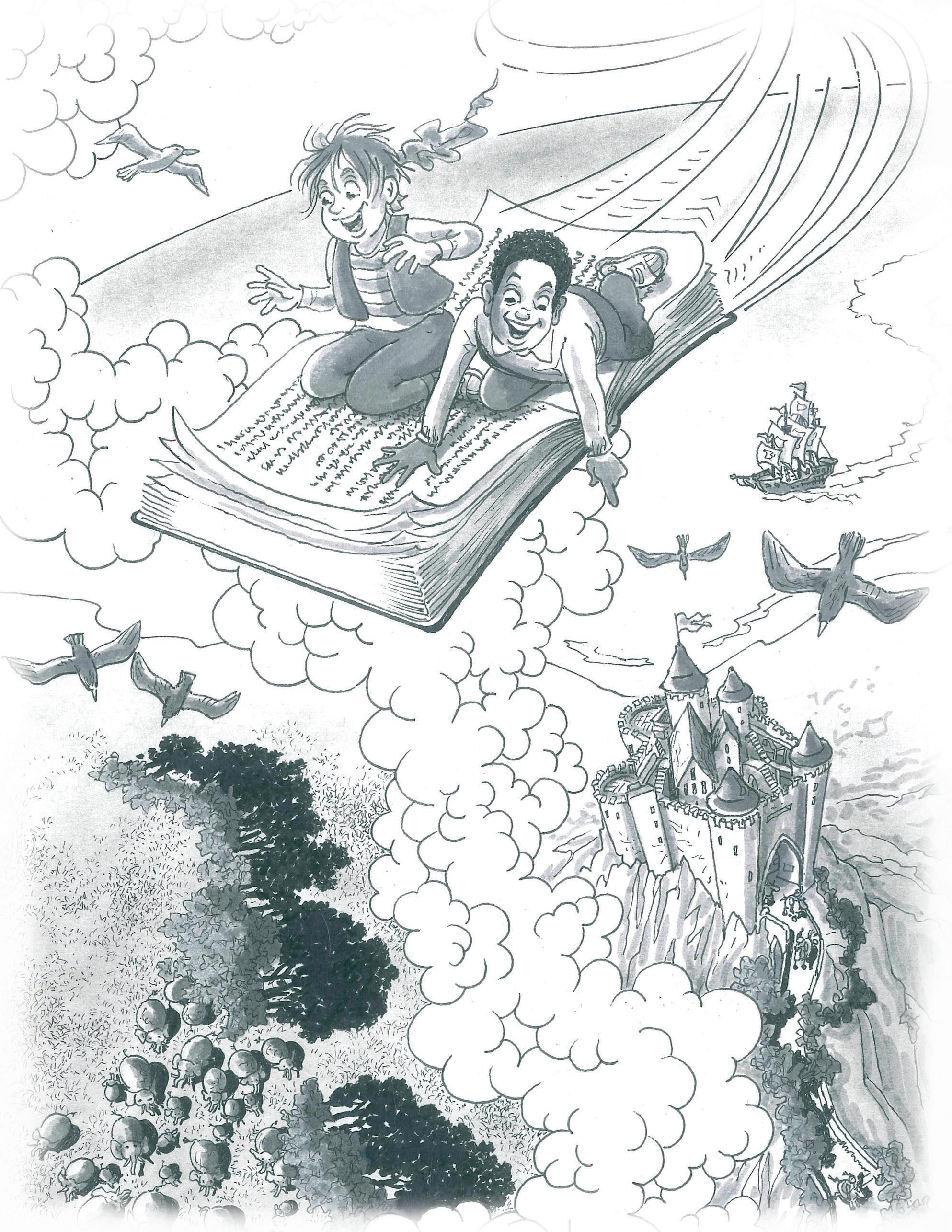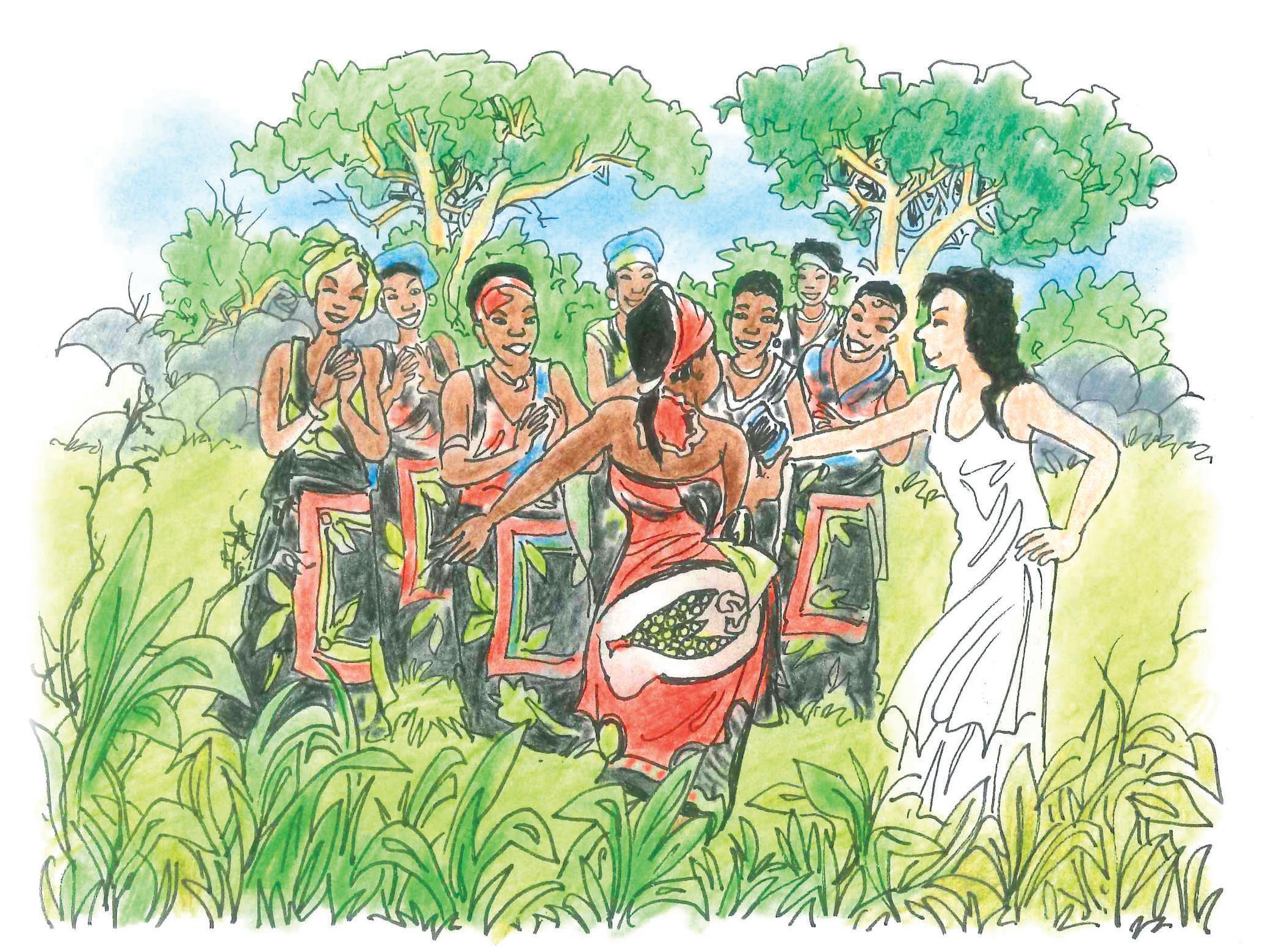Senior Phase



Owned and published by Optimi, a division of Optimi Central Services (Pty) Ltd.
7 Impala Avenue, Doringkloof, Centurion, 0157 info@optimi.co.za www.optimi.co.za
© Optimi
Apart from any fair dealing for the purpose of research, criticism or review as permitted in terms of the Copyright Act, no part of this publication may be reproduced, distributed, or transmitted in any form or by any means, electronic or mechanical, including photocopying, recording, or any information storage and retrieval system without prior written permission from the publisher.
The publisher has no responsibility for the persistence or accuracy of URLs for external or third-party internet websites referred to in this publication, and does not guarantee that any content on such websites is, or will remain, accurate or appropriate.
There are instances where we have been unable to trace or contact the copyright holder. If notified, the publisher will be pleased to rectify any errors or omissions at the earliest opportunity.
Reg. No.: 2011/011959/07

English First Additional Language
Study guide
Grade 8

Vocabulary
The meaning of new words to fully understand the text/content.

Tips
A useful hint to help improve skills.


Language structures and conventions

Key language elements that must be studied, understood and applied to the content of the lesson.
Activity
Core content and questions to test the learner's knowledge.
For the curious Encouragement to do in-depth research about the content. Expand the activity and exercise to such an extent that learners are encouraged to explore.
All the texts for this year are either in the facilitator’s guide or this study guide. However, you need to read as much as you can – this will help broaden your vocabulary, develop your imagination and improve your memory. Besides, books can take you anywhere you want to go! Look at the bookshelf and find a new book to read.

This study guide is organised into 4 units and 18 lessons. Each lesson is taught over 2 weeks.
• Unit 1 has five themed lessons.
• Unit 2 has four themed lessons and a mid-year examination.
• Unit 3 has five themed lessons.
• Unit 4 has four themed lessons and a year-end examination.
• At the end of units 2 and 4, you write exams.
Each lesson has 4 sections:
1. Listening and speaking
2. Reading and viewing
3. Writing and presenting
4. Language structures and conventions
Each of these sections contains activities. At the beginning of each lesson is a list of the topics covered in that lesson. At the end of each lesson are remedial and extension activities, which you may complete if time allows.
1
LESSON 1: Celebrate culture
LESSON 2: ‘Friends, romans, countrymen …’
LESSON 3: Images in action
LESSON 4: Money talks
LESSON 5: Take a sho’t left!
2 LESSON 6: Curious cats
LESSON 7: The land of make-believe
LESSON 8: ‘Mountain in the sea’
LESSON 9: ‘The blue planet’
LESSON 10: Unsocial media?
LESSON 11: Art matters
LESSON 12: You’re hired!
3
LESSON 13: Look out world, here I come!
LESSON 14: Be a good sport
4 LESSON 15: Rome wasn’t built in a day …
LESSON 16: I’ll be there for you …
LESSON 17: Who are you?
LESSON 18: Take time out
In this lesson you will:
• take part in a group discussion
• do a listening comprehension
• discuss features of a short story
• read and discuss a short story
• answer questions on a short story
• plan, draft, and edit a narrative or reflective essay
• plan, draft, and edit an email, interview, brochure or obituary
• practise subject-verb agreement
• practise nouns, adverbs, and punctuation



We may not always like speaking up in class or in front of an audience, but remember, discussions in class, or in general, can help you in many ways:
1. Participation makes things interesting.
2. A good question can make you think or wonder why.
3. When you answer and participate your facilitator can see how much you understand.
4. If your facilitator asks questions about assigned reading or about information in your study guide, it helps you to prepare for tests and examinations.
5. Participation can be used to develop important speaking skills. In many occupations, people must be able to speak up in a group. They may have to share information, ask questions, or argue for a different solution. People do not learn to speak up in a group by reading about how to do it, you must practise it.
6. Participation gives you the opportunity to practise using English in a more formal situation. It is very different from having a conversation with your friends and family. Practise using good English in class and broaden your vocabulary.

What do you think of when you hear the word ‘culture’? What does your culture mean to you? We must always be respectful of others’ cultures even if we do not understand it. Read the story about Maya Angelou, the poet, and the incident with the carpet.
During a trip to Senegal, Maya Angelou was invited to dinner by her friend, Samia. Passing a room where people stood close to the wall to avoid standing on the rug, Angelou became very angry. ‘I had known a woman in Egypt who would not allow her servants to walk on her rugs, saying that only she, her family and friends were going to wear out her expensive carpets. I was very disappointed in my friend, Samia.’
She decided to challenge this ridiculous idea and walked back and forth across the carpet. ‘The guests who were bunched up on the sidelines smiled at me weakly.’ Soon afterwards, servants came, rolled up the rug, took it away and brought in a fresh one. Samia then came in and announced that they would be serving one of Senegal’s most popular dishes in honour of Angelou.
And as the guests sat down on the floor where glasses, plates, cutlery and napkins were laid out on the carpet, Angelou realised the full extent of her mistake and was ‘on fire with shame.’
‘Clever and so proper Maya Angelou, I had walked up and down over the tablecloth … In an unfamiliar culture, it is wise to offer no innovations, no suggestions, or lessons.’
Would you have been embarrassed if you were attending the dinner? What would you have done in this instance? Would you have told Angelou to stop what she was doing? Why do you think none of the guests spoke up?
Let’s talk about different cultures. Use these points to guide your discussion:
1. How many countries’ cultures do you know?
2. What are some of the interesting things you know about the specific culture?
3. Can you describe something from a culture different to your own? For example, how other cultures celebrate special holidays, such as Diwali, Hanukkah, Eid Mubarak and Easter? Tell the class or your facilitator what you know about any of these celebrations.
4. What do you think makes South African culture special?
5. What do you enjoy most about your culture?
6. Why do you think it is important that we learn about other cultures and how people live and celebrate?
The Maneki-neko, a popular Japanese figure, often believed to bring good luck.

London, a popular destination for tourists.



a
Pre-listening
Your facilitator will read an article to you. It is about the Arctic and how people survive there.
During listening
Make notes of important points as you listen. You will be asked questions on some of the details of the article. Listen carefully and think about some of the points discussed in the article.
• What is the main idea of the article?
• Are there any unfamiliar words?
• Specific details in the article.
Post-listening
Arrange your notes in a logical order to answer the questions.

Think about this …
People who live in the Arctic find a way to make a home and survive. But what motivates them to stay there? Do some research or discuss it with your friends.

• A complete guide with all the texts (contemporary and classic) for comprehension exercises, speeches, and reading included.
• Contains tips for better writing, critical reading and understanding.
• Various levels of questions and activities to develop language skills and critical thinking.
• Complete explanations on grammar and syntax
• Practical examples of writing tasks.
• Encourages independent reading and research and broadens vocabulary.
• Use in school or at home.